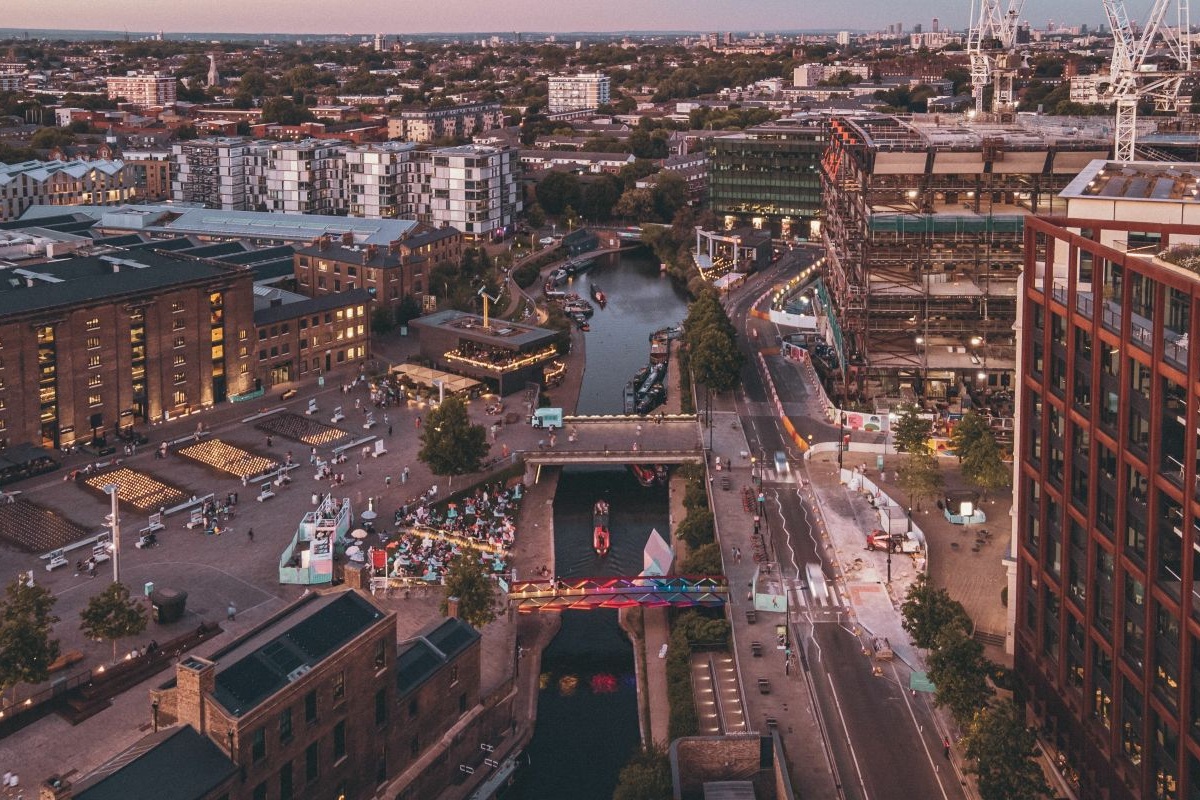King’s Cross in the heart of London is set to become a living testbed for decarbonising heat this winter. UK Power Networks’ flagship project, Heatropolis, is using King’s Cross regeneration zone to create a sustainable blueprint for heating homes and buildings, using clean energy.
The innovation is being led by UK Power Networks, with partners including Metropolitan, Passiv UK and Guidehouse, each bringing critical expertise to drive the initiative forward this year.
The four-year project is exploring how heat distribution systems can be designed to optimise the ways heat and electricity networks work together. This will involve three winter trials (2025-2027) across three key building models: a low-density residential heat network, a multi-occupancy building, and a large mixed-use site, with King’s Cross serving as the benchmark for the latter.
The former industrial site is one of the city’s largest redevelopments and is home to several major corporations, including Google, Meta and Universal Music. It has also been rejuvenated with public squares, parks, restaurants, homes, schools and a university. With more households converting to electric heating, Heatropolis is finding solutions to manage additional demand on local electricity networks in the most cost-effective way. It aims to reduce the costs of connecting and operating electrical heat networks by using ‘flexibility’ to help manage peaks and troughs in supply and demand.
The potential carbon savings are significant, with an estimated 3,000 tonnes of CO2 emissions avoided through reduced electricity network reinforcement and a financial benefit of £70 million by 2050 from deferring or avoiding unnecessary grid upgrades.
Heatropolis is one of three UK Power Networks projects that secured Beta funding from the Strategic Innovation Fund, an Ofgem programme managed in partnership with Innovate UK.
Luca Grella, Head of Innovation at UK Power Networks, says, “We are excited for the physical rollout of Heatropolis as it presents a unique opportunity to make sure the way we heat our homes and buildings is fit for the future.
“By integrating low-carbon technologies with advanced flexibility and control systems, we can significantly reduce peak demand on electricity networks, which will result in lower energy costs for consumers and contribute to a more sustainable energy future.”
Bruce Geldard, Engineering Director at Metropolitan – which delivers low carbon heat, hot water and cooling networks for new communities – adds, “We are delighted to take the next step in our partnership with UK Power Networks in the latest phase of the Heatropolis project. This collaboration is an exciting opportunity for Metropolitan to be able to further develop our work in delivery of sustainable, low-carbon heating solutions.
“Through this initiative, we are helping to create a blueprint for decarbonising and optimising existing and new heat networks, driving forward the transformation of energy system across the UK to meet our carbon reduction goals.”
For more from UK Power Networks, click here.



